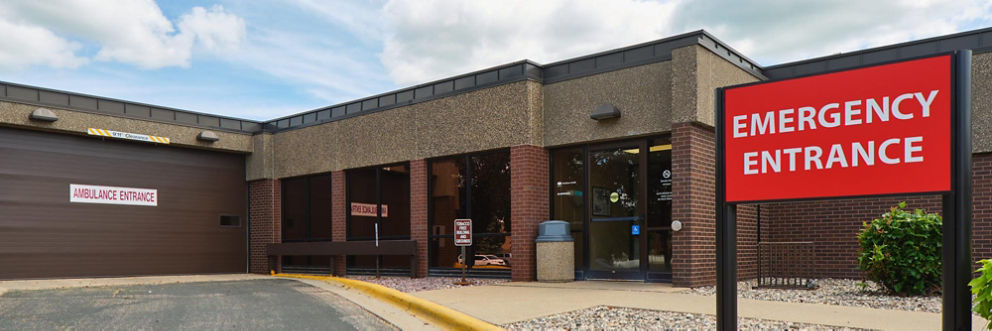Emergency Center
Emergency care in Hutchinson
Injuries and illnesses don’t follow your schedule. So when something unexpected happens, you need the best care available. As a Level IV trauma center, certified Acute Stroke Ready Hospital, and a Level I heart attack center, Hutchinson Health’s Emergency Center is prepared to handle a painful fall, unexplained chest pains and everything in between.
Moments after you step inside the emergency center, one of our registered nurses will assess your condition. This innovative “Care That Fits” approach helps ensure that our patients have quick access to the right medical care for their condition.
Our emergency center is open 24/7. We’re always here when you need us.
Call 911 if you need emergency assistance.
Emergency room services
We provide comprehensive treatment options to treat your illness or injury. Our services include:
- Asthma and respiratory care
- Concussions and traumatic brain injury diagnosis and treatment
- CT scans, MRIs, ultrasounds and X-rays
- Heart attack and cardiovascular disease treatment
- Mental health care
- Pediatric care
- Stroke care
- Treatment for broken bones, dislocations, sprains and fractures
- Treatment for wounds, lacerations and burns
- Trauma care
When to call 911
If you or someone with you is facing a life-threatening situation such as loss of consciousness, breathing trouble or excessive bleeding, call 911. Emergency operators may be able to give you advice to help handle the situation while waiting for the paramedics/EMTS to arrive to provide aid and transport.
How to prepare for an emergency visit
In order to help your visit go as smoothly as possible, we recommend following this advice.
What to bring
Remembering the following items can make your visit to the emergency room go smoother:
- A complete list of your current medications
- Health insurance cards
- A driver’s license or ID card
- A trusted friend or family member
Be honest
We need the facts to properly assess and treat your situation. Do not be afraid or embarrassed to tell us any sensitive information, like if you’ve taken Viagra, you’re HIV positive or you’re pregnant. Providing this information helps us give you safe, effective care.
Ask questions
We want you to be informed about your condition and care. If something doesn’t make sense, ask us to explain it again. We want to make sure you understand your care instructions and treatment options. We’ll also provide a written visit summary so you can reread the information whenever you want.
